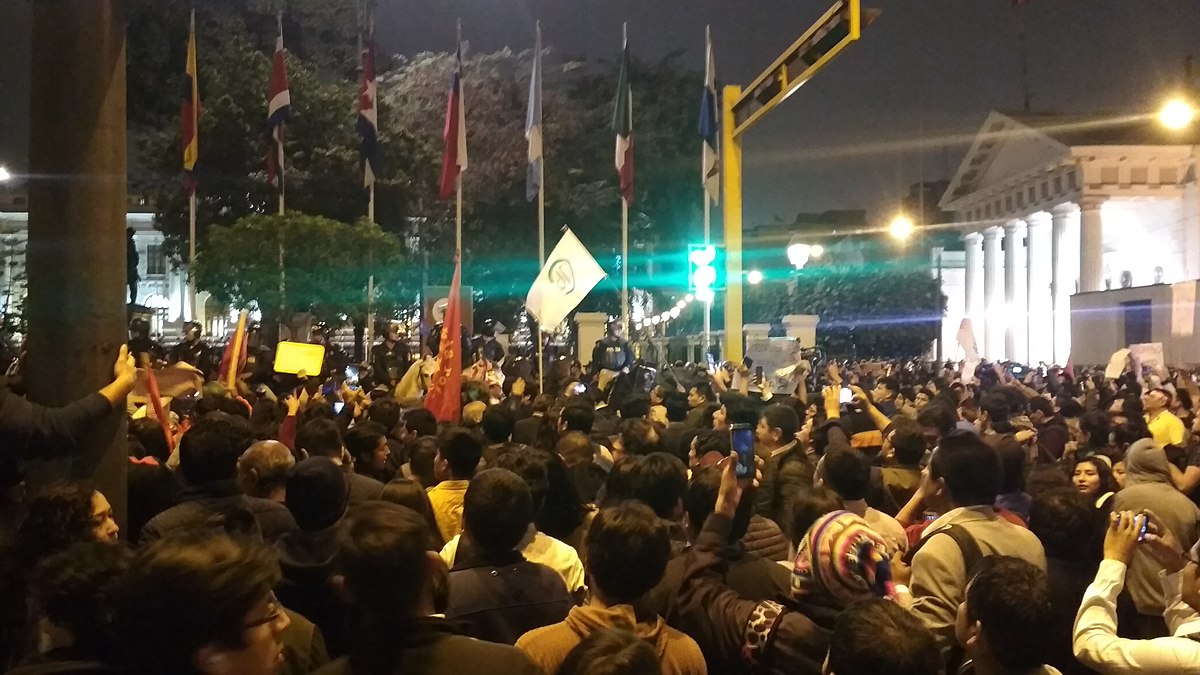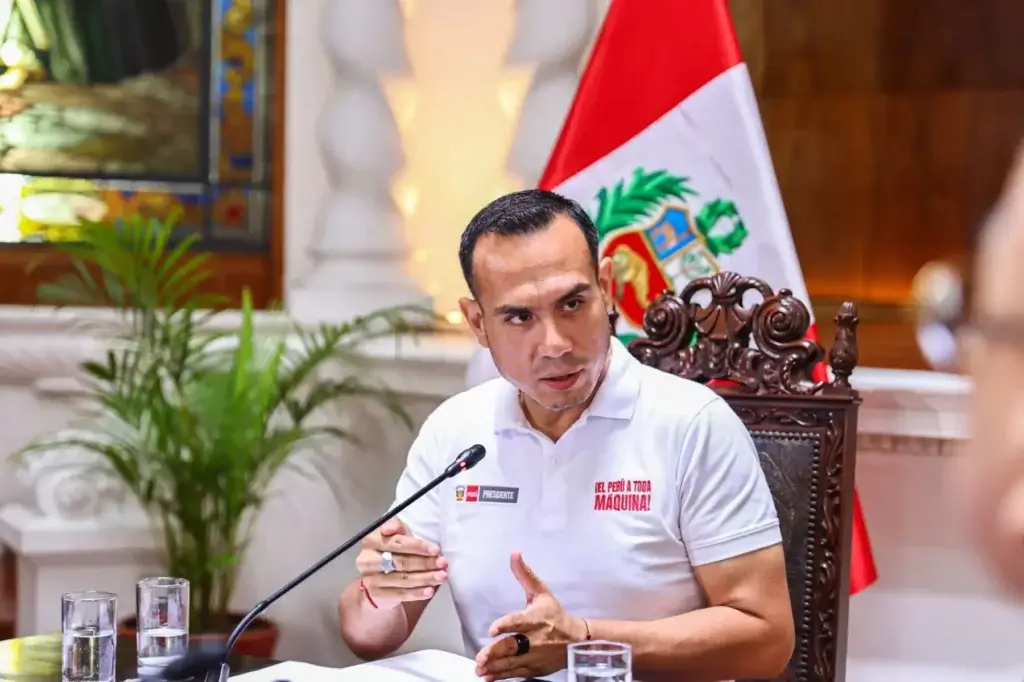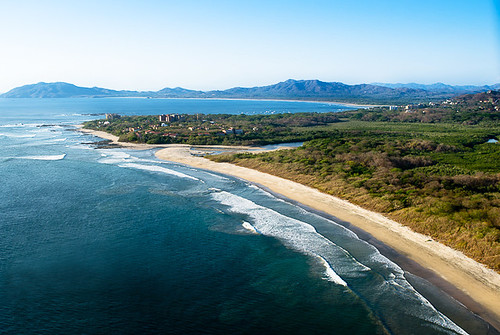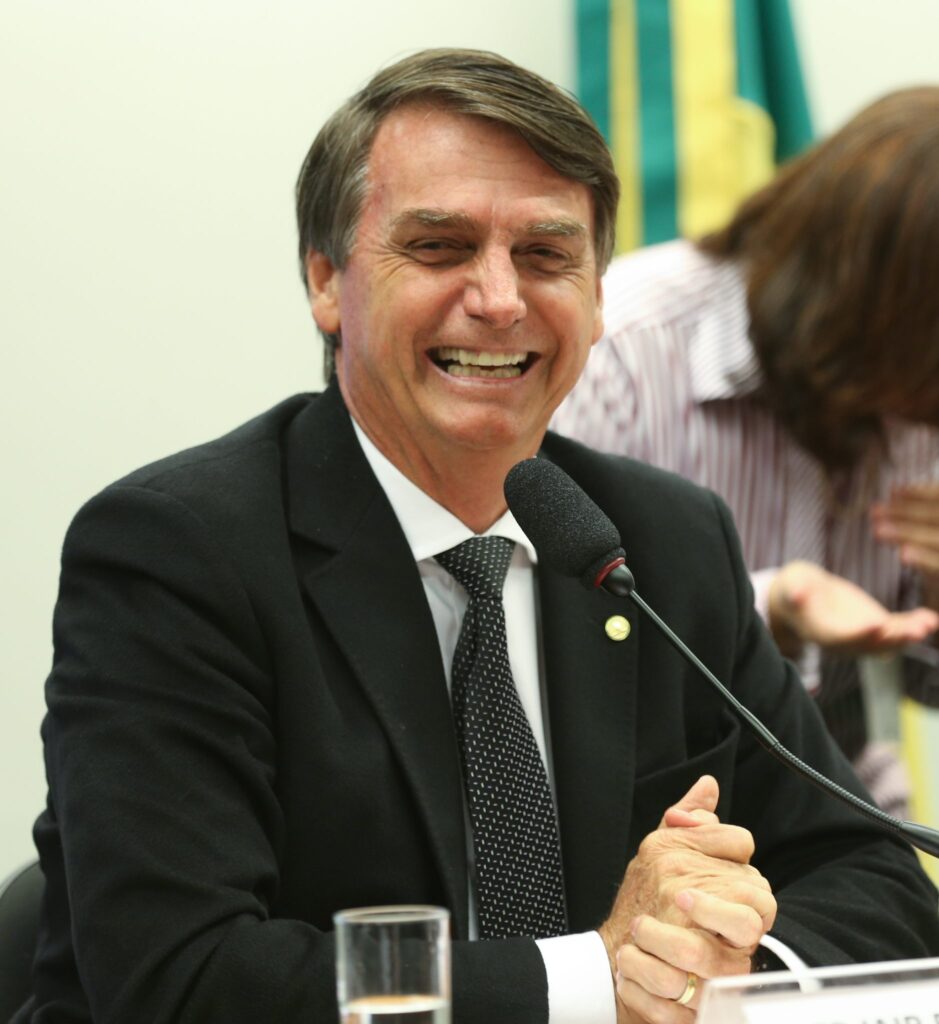Earlier this week, Peru’s Congress met to appoint new judges to Peru’s Constitutional Tribunal. Contrary to President Vizcarra’s wishes, the Fujimorista-dominated Congress prepared to pack it with similarly-aligned politicians.
To prevent this from happening, Vizcarra proposed to reform the way the tribunal judges are appointed, in order to create a more transparent selection process and block his opposition’s power play. To double down on his proposal, Vizcarra declared that this proposal would constitute a vote of confidence in his cabinet so that if the proposal was rejected, Vizcarra would have the constitutional power to dissolve Congress.
Read more: The backstory behind Peru’s political turmoil
During Monday’s session, however, Congress chose to approve one of the nominees for the Constitutional Tribunal – Gonzalo Ortiz de Zevallos, the first cousin of Pedro Olaechea, the leader of Congress – before addressing Vizcarra’s reform bill and vote of confidence.
On Monday night, Vizcarra responded via a televised announcement that such an act had the legal effect of voting no confidence, giving him the constitutional premise to subsequently dissolve Congress and call for new congressional elections on 26 January 2020.
According to reports from the BBC, public opinion appeared in favor of the dissolution of Congress,and after Vizcarra announced his decision, there were demonstrations in defense of his decision in the historic center of Lima and across the country.
Hours later, the leaders of Congress countered that there was never any vote of no confidence, meaning that Congress was still in session. Seconds before Vizcarra made his announcement, Congress ultimately approved the vote of confidence, leading the Chamber to denounce the president’s announcement as unconstitutional.
Labelling Vizcarra’s dissolution as an attempted coup d’etat, Congress stated that the president was morally incapacitated, allowing them to suspend him from his functions for 12 months, now that they had the constitutional premise to do so. A majority of congress (86 out of 130 members) voted in favor of this action.
Mercedes Aráoz, the acting vice president at the time, was subsequently sworn in as interim president by Congress. She claimed that Vizcarra failed to comply with three constitutional articles, announcing that she would assume interim presidency of the country.
On the morning of Tuesday October 1, the presidential office’s Twitter account announced that the armed forces and national police would give their “full backing to constitutional order and to the president [Vizcarra].”
The following morning, Aráoz tweeted that, contrary to her previous statements, she would be declining the post of interim president and resigning as vice president. Prime Minister Vicente Zeballos, has since labelled Aráoz’s resignation as invalid due to the fact it was presented to a Congress which had been dissolved, again emphasising the illegitimacy of the institution’s authority.
After citing “the breaking down of constitutional order in Peru” as the fundamental reason for her resignation, she went on to endorse the Organization of American States’ statement that the responsibility for settling the dispute over the legality of Vizcarra’s action should lie with Constitutional Tribunal.
On Wednesday, The Permanent Commission of Congress (which remains active even after the dissolution of Congress) held session and voted that the Constitutional Tribunal should indeed be responsible for resolving the conflict, in spite of the critical role that the court played in bringing about the current situation.
At midday on Thursday, Vizcarra presented the new cabinet of ministers.
With Vizcarra having passed a motion to hold parliamentary elections on 26 January and Congress planning to vote today on a motion to dismiss him altogether, a lengthy legal battle seems to be on the horizon.
This is a developing story and more coverage may soon follow.











